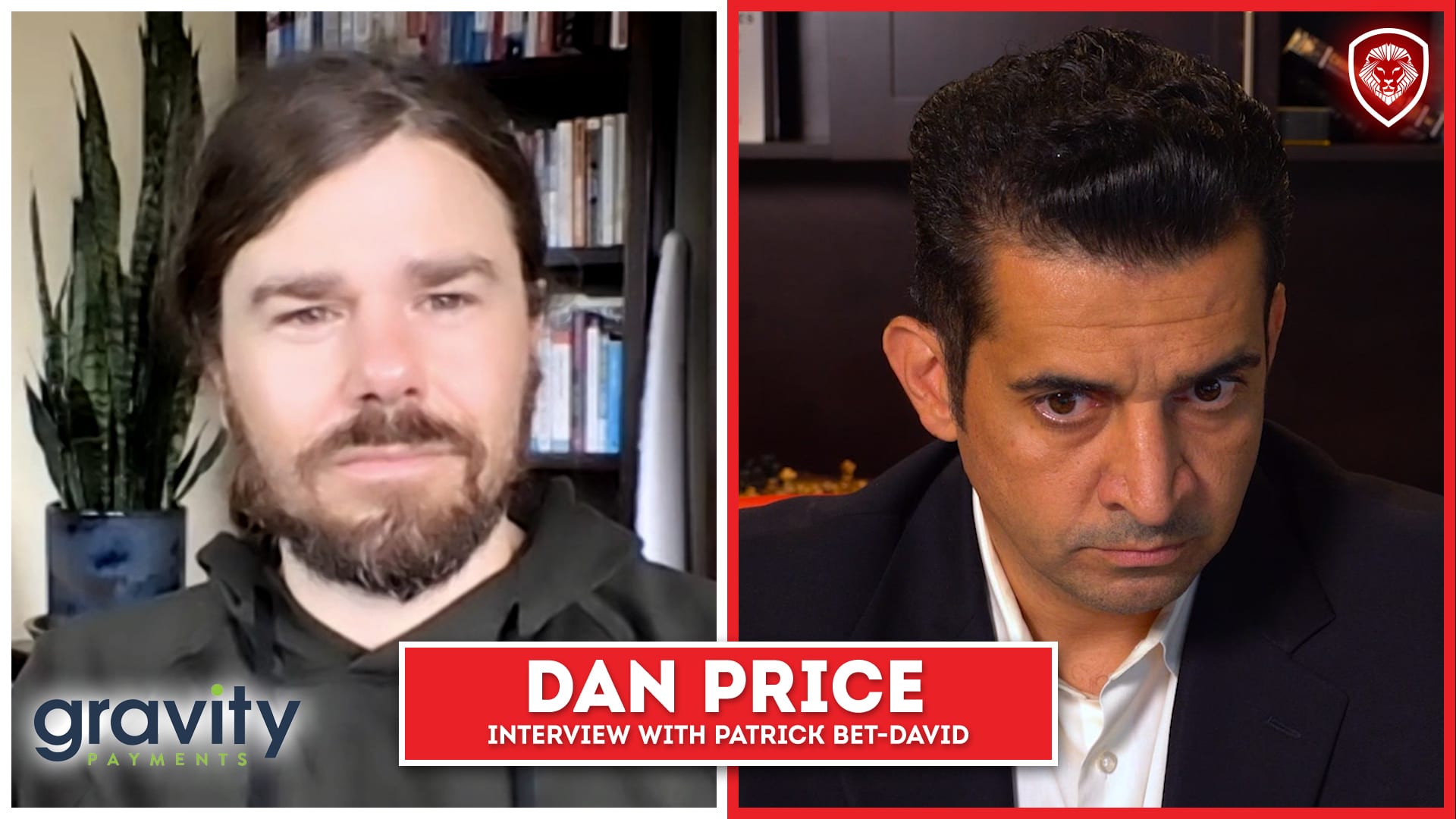 This article is by Rebecca Livermore. Rebecca is the content manager here at PatrickBetDavid.com and the owner of Professional Content Creation. She invites you to connect with her on LinkedIn.
This article is by Rebecca Livermore. Rebecca is the content manager here at PatrickBetDavid.com and the owner of Professional Content Creation. She invites you to connect with her on LinkedIn.
So, you wrote the perfect blog post. Well-researched, helpful, and even – to your delight – extremely witty. After reading your favorite sentences multiple times basking in all their greatness, you hit publish, shared the article on social media, and then waited for the comments and social media shares to come pouring in. This was, after all, no ordinary blog post. This was your heart. Your soul. The very essence of who you are as an entrepreneur, poured out through the written word.
But no one seemed to care. Your Facebook Insights revealed that no one clicked on the link. No one shared your article. No one commented. What went wrong? Here’s the deal; if no one even bothered reading your article, chances are, you chose the wrong title. Blog post titles matter more than you think. In fact, they matter so much, if you get them wrong, few people will even see the words you poured your heart into.
So now let’s get right into how to write the best business blog post titles.
#1: Determine the Goal for Your Article
Before you even start to write your article, you should have an idea of what you hope to accomplish through the article. The goal for your article plays a big part in your title choice because it positions the article to be received in a particular way, and draws the right kind of reader that will resonate with your article.
Here are just a few examples of goals for an article.
Teaching
For example, in this article my goal was to teach you something -- how to write blog post titles. Since my goal was to teach a specific skill, starting the title with "How to" makes sense. It also lets you as the reader know what to expect in the article, and attracts people who are looking for this specific skill.
Feed Prejudice or Promote a Cause
If your goal is to feed into some type of prejudice or cause, the title could include something disparaging about the target of your disdain. For example, during the U.S. campaign season, you had people on the extreme right who wanted to discredit Hillary Clinton on the basis of her health, so you saw titles such as, "Is Hillary Clinton Dying? Why Hillary Will Collapse During the Debates." To rile up Trump haters, a blogger would perhaps write a title such as, "The Top 10 Ways Donald Trump is Like Hitler."
Neither of these title examples are ones I'd want my name associated with -- but if the goal of the article was to fuel a negative opinion about a candidate, such titles would accomplish that.
If you want to promote a cause, your title may be more positive. For example, if your cause is making sure the homeless are fed, your title may be something like, 5 Easy Ways to Provide at Hot Meal for the Homeless this Winter.
To Sell a Product or Service
If the goal of your article is to directly or indirectly sell your product or service, your title would appeal to people that need whatever it is you're selling. For example, let's say you have a product that secures fences so dogs can't escape. Your title may be Why Some Dogs Are Escape Artists and What to Do About It. Anyone that has such a dog, and has had to drive around their neighborhood for hours trying to find the dog yet again will want to read that article -- and perhaps buy your product that will keep it from happening again.
To Establish Yourself as an Expert
Blogging is a great way to become known as an expert in your field. If that is your goal, you could write multiple how-to pieces, articles that present a viewpoint no one else is talking about, or an ultimate guide to something in your industry. Those types of articles could have these types of titles:
- How to ______________ so that ___________
- 5 Easy Steps to Mastering ____________
- Why _________ (a top leader in your industry) is Wrong about __________ (a current hot topic)
- The Ultimate Guide to __________________ (something in your industry)
The first two examples are articles that could make up the bulk of the type of content you write. The third one is a way to establish yourself as a thought leader, assuming that you have valid points for why a well-known figure in your industry is all wrong. And ultimate guides are a great way to show off your expertise since they tend to be more in-depth than a typical blog post.
#2: Determine Your Target Audience
It's a good idea to have someone in mind when you sit down to write your article. Your blog post title should appeal to that specific audience.
For example, in this article, I'm writing to entrepreneurs who have started a blog but aren't seeing results. The entrepreneur in step #1 above that has a product for dog owners may write an article that targets suburban dog owners that are professionals, with little time to deal with a dog that's an escape artist.
Your title should make it clear the type of person the article will help. For example, in the title for this article, I included the word, "business" to indicate that the article is specifically for business owners that have a blog, rather than, for example, a stay-at-home mom that blogs for personal reasons unrelated to business. If your target audience are beginners, you could use words such as "a Beginner's Guide to _________" or "Step-by-Step" or "Easy" as part of your title.
#3: Choose an Emotional Response
Emotions, both negative and positive, move people to click on a link to an article, share the article, and hopefully take action on it. For example, the person who owns the dog who should have been named "Houdini" feels frustrated -- and is perhaps afraid of what might happen to the dog when he's out running the streets. A title such How to Keep Your Dog Safe When You Live Near a Busy Street taps into the fear, and gives you the opportunity to provide a solution to keep their beloved pet safe.
Positive emotional responses also compel people to click on a link, read articles and share them. For example, the article published here on PatrickBetDavid.com 14 Reasons Why Moms Make Great Entrepreneurs is a "feel good" title for moms who are either already entrepreneurs or thinking of becoming entrepreneurs. The title itself conveys to moms, "I'm special. I have what it takes to be a great entrepreneur."
And by the way, not every post has to evoke emotions, but ones that do will get more clicks and shares.
4: Choose Your Keyword Phrase
I'll get more into keywords in a future article. For now, just know that each blog post you write should be optimized for a keyword, or even better, a keyword phrase.
As an example, the keyword phrase for this article is "blog post titles." You'll notice that the keyword phrase is included in the title, URL, and a few places in the article.
If you already have a large following, it's okay to use a more clever title, but in most cases it's best to use a keyword phrase that people would actually search for as part of your title. A keyword phrase also makes the topic of the article clear.
5: Add Powerful Words
Once you have your keyword phrase, consider adding some powerful words to it. Powerful words are ones that grab attention and draw people in. Here are some examples:
- How to
- 7 Tips (alter the number and word afterwards, such as 5 Ways, 6 Steps, 10 Secrets, etc.)
- Easy
- Effective
- Proven
- Time-Tested
- Mistakes
- Smart
- Quick
- Affordable
- Secrets
- Surprising
- Ultimate
6: Use Tools Sparingly
The good news is, there are some great tools out there to help you craft excellent blog post titles. The bad news is that if you overuse them, you can end up sounding like a robot, or worse.
For example, Portent's Content Idea Generator is a tool you can use to generate titles. Some of the titles are good, and some are just plain awful. For example, when I typed "blog post titles" into it, the first suggestion was, Why Blog Post Titles are Scarier than Tyra Banks. Hmmm. . . somehow I don't think that's quite right.
Let's try another one. Why Mom was Right About Blog Post Titles. This one has possibilities, since it would stir up curiosity. This is, of course, assuming that things my mom (or a "typical" mom) say could apply to blog post titles.
Here's another one: How Blog Post Titles Changed How We Think About Death. Wow. I think this one is even worse than the Tyra Banks one.
Let's try just one more. What Experts Are Saying About Blog Post Titles. Okay, this is the best one yet.
So here's the deal. I shared these computer generated titles with you to make a point. Nothing replaces the human mind. When it comes right down to it, this little title generator doesn't really understand my topic or my audience. Now what it does, however, is spark some ideas that I can add a human touch to.
Having said that, here are some title generator tools you may want to check out:
Just don't let me catch you including words like Tyra Banks or death in your title -- unless it really makes sense to do so. 🙂
7: Test Out At Least 10 Blog Post Titles
When you sit down to write your title, don't stop with just one or two. Make a habit of coming up with at least 10 different possibilities. The CoSchedule Headline Analyzer is a great free tool to test your titles.
Here's an example of how it works. When I type in, "Blog Post titles" here's part of what comes up:


Obviously, the title, "Blog Post Titles" isn't a good title.
At this point, I recommend typing in at least nine additional titles, and then choosing one of the higher ranking ones that resonates with you. Here's an example of what you'll see after you've typed in several different blog post titles:

By the way, you may or may not want to choose the title with the highest score, but you should avoid anything that is red and preferably choose one that is green.
Remember: Use tools sparingly. The CoSchedule Headline Analyzer isn't human, and there's no substitute for your own ability to think through the results. Sometimes intuition trumps the tool, so don't be a slave to it.
#8: Deliver on Your Promise
Regardless of how great of a title you choose and how high of a score it gets when analyzed, you'll be discredited as an entrepreneur if your article doesn't deliver on what you promised in the title. For instance, if your title has the word, "easy" in it, then what you present better not be complicated. If it says "proven," then don't write about something you haven't yet tested. As is always the case, treat others the way you want to be treated. If you'd feel duped by your title based on the article you wrote, pick a different title that directly relates to the article.
Your Turn
Share your thoughts and questions about blog post titles in the comments below.







